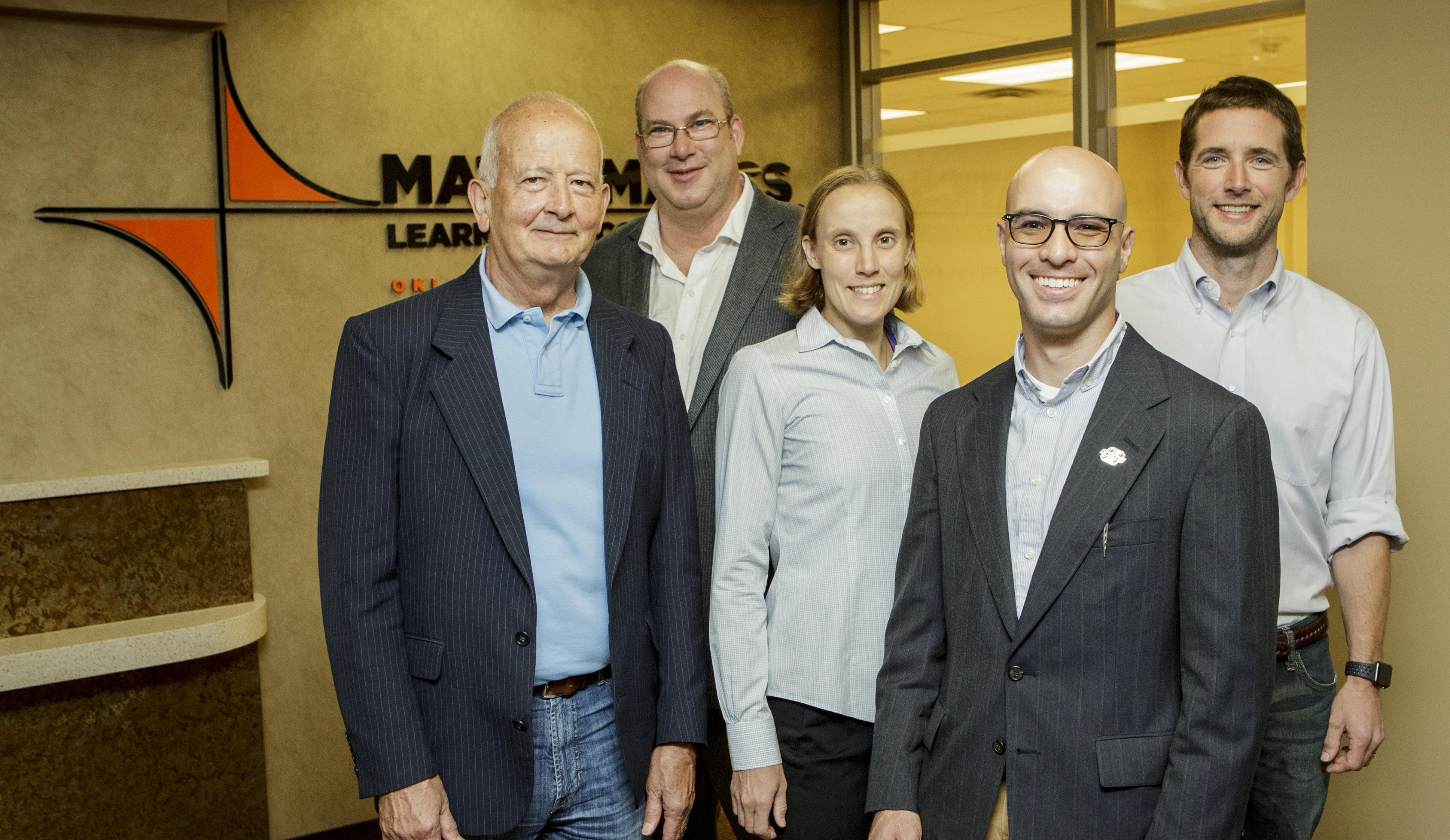The OSU Department of Mathematics has led the way in the reform of college-level mathematics instruction in recent years, and these efforts received a significant boost with a new five-year, $3 million grant from the National Science Foundation. Faculty members William “Bus” Jaco, John Paul Cook, Allison Dorko, Michael Oehrtman, and Michael Tallman earned the funding for the Mathematical Inquiry Project (MIP), which aims to improve and standardize instruction in gateway college-level math courses throughout Oklahoma.

The five-year project will continue the work of the Mathematics Success Group, a task force of the Oklahoma State Regents for Higher Education (OSRHE) designed to address a broad range of issues in college-level mathematics instruction. The task force set the groundwork for the MIP by encouraging the implementation of math pathways and corequisite instruction. Math pathways are different types of entry-level mathematics courses, each designed to focus more specifically on students’ degree plans and career interests rather than sending everyone into the more mathematically formal College Algebra course that STEM students take. For example, OSU’s Mathematical Functions and Their Uses course, designed by OSU faculty members Bruce Crauder, Benny Evans, and Alan Noell, is the basis for the state’s Modeling pathway, a course that teaches students at an introductory level about creating and using mathematical models. This class has served well as a prerequisite for Business Calculus and for disciplinary statistics courses in the social sciences, maintaining mathematical rigor while offering students a clear picture of how math is used in their areas of interest.
Corequisite instruction is a model for getting students out of remedial instruction and into college-level classes faster. National data suggest that students who start in remedial math classes in college have only a 20% chance of succeeding in a college-level class within two years. Instead of having most underprepared students in remedial courses, OSU began corequisite instruction in 2015, allowing many students to take college-level classes with extra support right away. The results have been astonishing: over 70% of OSU corequisite students have earned a C or better in a college-level math class in a single semester.
The MIP will support each of these OSRHE efforts by bringing teams from across the state together to work on objectives for gateway math courses and active-learning course modules for these classes. This will ensure more uniform instruction throughout the state, facilitating smooth transfers for students from one Oklahoma institution to another. It will also assist instructors at each of the public colleges and universities in the state by providing them with sets of classroom materials that are based on peer-reviewed research in mathematics education.
Efforts kicked off in the summer of 2019 with a series of workshops on the academic skills needed to succeed in college-level math and on the specific gateway courses the grant addresses, which start at the entry level and go through Calculus I. At the same time, OSU is working with the University of Oklahoma and OSRHE to maximize the alignment of math requirements in common degree programs.
For more details, see page 72 of the Winter 2018 STATE Magazine.
